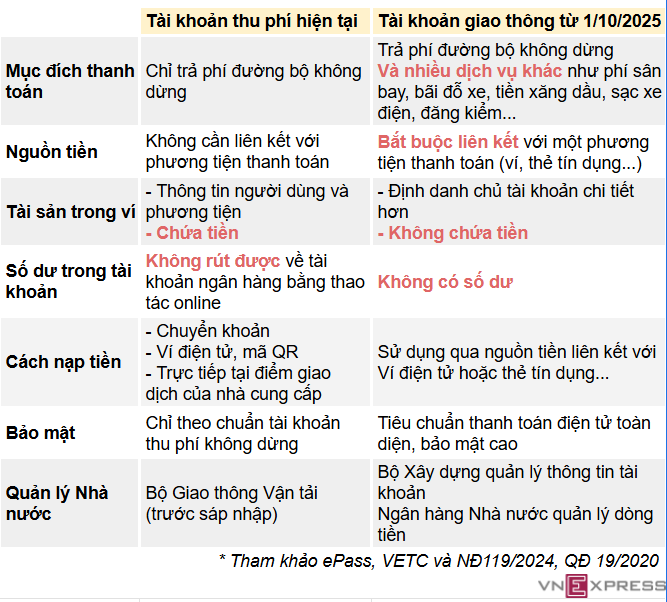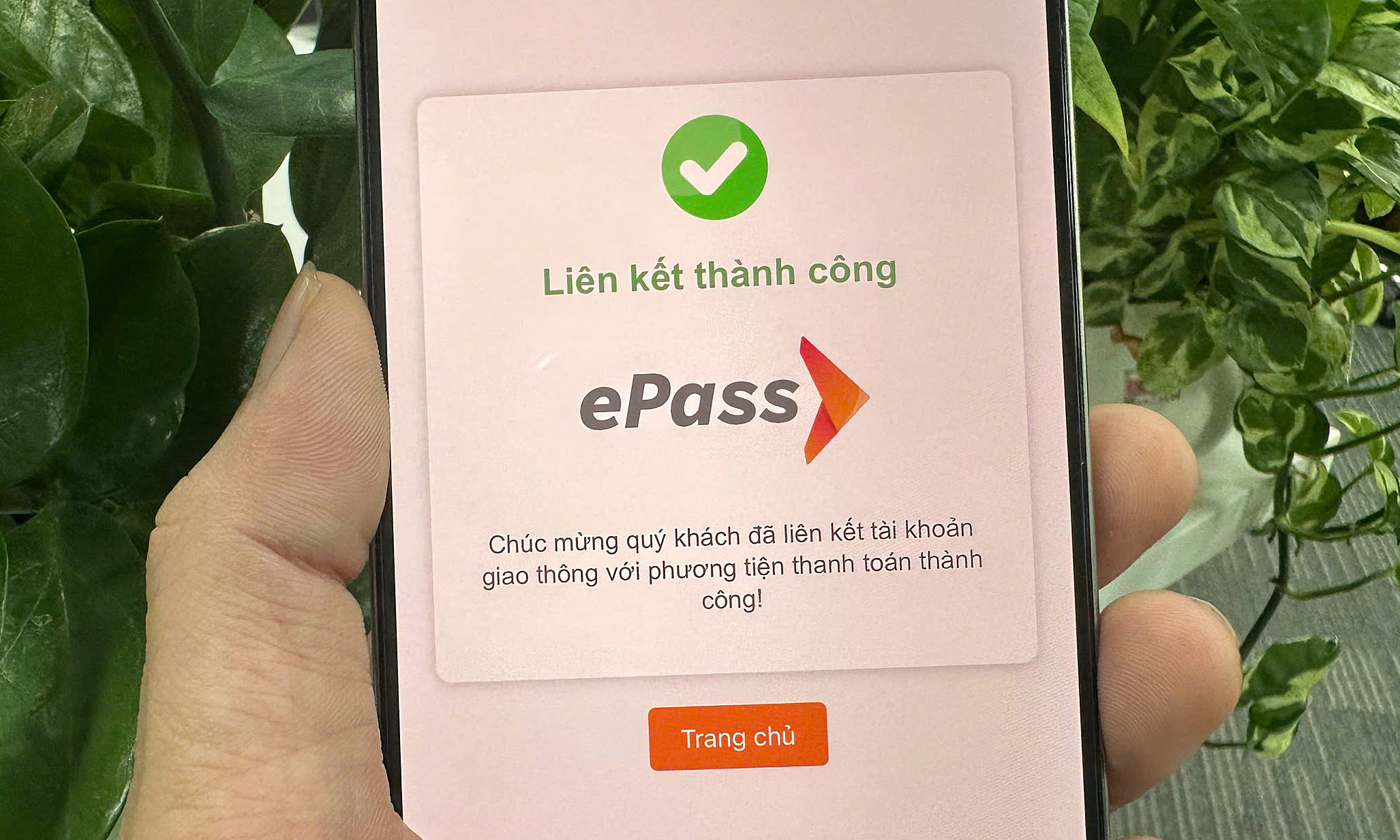Vehicle owners must convert their toll accounts to transportation accounts before 1/10 or they won't be able to pass through electronic toll collection (ETC) stations.
What distinguishes "transportation accounts" from "toll accounts"?
"Toll accounts" were first introduced in Decision 19/2020, primarily as a basis for non-stop electronic toll collection on highways. In contrast, transportation accounts are a newer concept, established by the 2024 Road Traffic Law.
 |
A transportation account successfully linked to a payment method on 12/8. Photo: Anh Tu |
Current toll accounts contain the vehicle owner's contact information, vehicle identification number, and funds. They don't require users to link a payment source. Owners can top up their accounts via banking apps, e-wallets, QR codes, or directly at service provider locations. Funds in these accounts don't earn interest.
A transportation account is defined as an account opened for a vehicle owner and connected to a legal payment method for cashless transactions, as per banking regulations.
Initially, transportation accounts only appeared in "build-own-operate" (BOO) contracts between the Ministry of Transport (before its merger with the Ministry of Construction) and two ETC service providers: VETC and VDTC.
Compared to toll accounts, transportation accounts require identification, including more detailed owner information like date of birth, gender, nationality, and personal identification number.
Unlike toll accounts, transportation accounts don't hold funds. Instead, they link to the owner's payment methods, such as bank accounts, e-wallets, or credit cards.
One transportation account can only link to a single funding source. Owners are responsible for ensuring sufficient funds in their linked source for electronic road toll payments.
 |
A transportation account successfully linked to a payment method on 12/8. Photo: Anh Tu
Why the switch?
Upgrading from "toll accounts" to "transportation accounts" primarily expands payment options for users.
Currently, around 6.3 million vehicles in Vietnam (nearly 100%) use ETC services. However, the Ministry of Transport (before its merger with the Ministry of Construction) assessed that "toll accounts haven't fully realized their potential in terms of account usage and investment."
Decision 19/2020 limited "toll accounts" to solely paying ETC fees. To broaden their use, authorities proposed expanding services. Decree 119/2024 on electronic road toll payments introduced "transportation accounts" with more functions than previous "toll accounts." This decree, effective from 1/10, sets the deadline for account conversion.
Besides tolls, transportation accounts can pay for parking (at lots, airports, malls), fuel, charging, vehicle inspections, and insurance. One account can also serve multiple vehicles.
The upgrade also strengthens government oversight. ETC payments, being a specialized service, don't fall under the State Bank of Vietnam's jurisdiction. However, the Ministry of Transport lacked expertise in managing funds within toll accounts, creating difficulties. Therefore, the Ministry of Construction (formerly Transport) proposed State Bank involvement, similar to other electronic payments.
Under Decree 119, the Ministry of Construction manages transportation accounts, containing owner and vehicle information. The State Bank oversees linked payment methods, enhancing security and legality for individuals and businesses.
ETC providers recommend linking accounts to e-wallets within the same system. For instance, VETC suggests linking to the VETC e-wallet. This ensures service stability, as ETC systems require real-time transaction processing (within 200 ms).
Similarly, VDTC's ePass app is optimized for linking with Viettel Money/Viettel Pay.
Anh Tu












